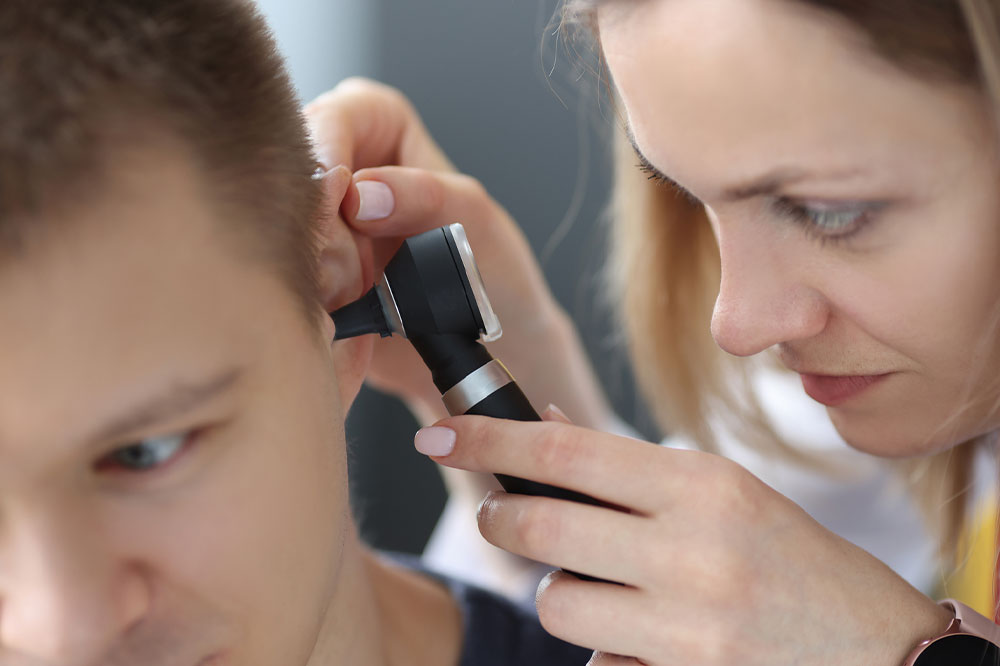Ear problems triggered by excessive sugar and their symptoms

Most people love eating sugary foods or beverages, but it often comes at a cost. Excessive intake of sugar-rich foods is known to cause various health concerns affecting the eyes, kidneys, liver, skin, and even the ears. It happens due to uncontrolled blood sugar levels in one’s body, paving the way for chronic conditions like diabetes. Keep reading to learn more about the various hearing issues caused by excessive sugar intake and their warning signs.
Hearing problems and other ear issues caused by excessive sugar intake
Decreased hearing
Hearing loss is extremely common among older adults as it happens with age. However, other factors can play a pivotal role in developing this condition, including diabetes, prolonged exposure to loud noises, and excess ear wax.
Usually, when it comes to diabetes, one of the main reasons patients can develop hearing loss or decreased hearing is the damage caused to the blood vessels in the inner ear. But diabetes can also cause other complications, including auditory nerve damage, where one may experience problems like sounds fading in and out.
Loss of balance
As mentioned previously, uncontrolled blood sugar levels in the body can cause damage to the small blood vessels in the ear. Sometimes, when damage occurs to the vestibular system, located in the inner ear, it can lead to loss of balance.
In such cases, one can have an increased risk of dizziness and falls. Hence, patients experiencing this ear issue must consult a health expert immediately.
Tinnitus
Patients with diabetes have an increased risk of developing an ear problem known as tinnitus. Here, one may notice a constant ringing sensation in their ears.
While the connection between diabetes and tinnitus requires more study, this ear issue can be caused due reduced functioning of the ear cells and auditory nerves. It means diabetes patients with insulin resistance can, over time, experience tinnitus as one of the hearing problems triggered by excessive sugar intake.
Ear infections
Although itching and infections in the ears can happen due to various reasons, people with certain illnesses such as liver disease and diabetes can experience itchiness or infections as symptoms of hearing issues caused by high intake of sugar.
Typically, the ear wax formed in diabetes patients is less acidic when compared with others. It means the alkaline earwax cannot defend the ear against bacteria, leading to severe infections. In rare cases, when the infection remains untreated, it can spread to the surrounding bone.
Warning signs of hearing problems due to excessive sugar intake
Generally, symptoms of hearing problems can differ from one person to another. Hence, here are some of the most common warning signs of hearing problems that happen due to excessive sugar intake.
Hearing muffled sounds
Typically, the organ situated in the middle ear, also known as the cochlea, is responsible for picking up high-pitched sounds. Sometimes, due to the damage caused to the nerves and blood vessels in the area, the high-pitch detecting cells begin to fail. It can often cause problems in hearing and understanding different sounds and voices. For instance, one may be unable to hear the sounds of crickets or the microwave beep clearly.
Vomiting
The inner ear plays a vital role in maintaining and regulating balance. However, diabetes-related damage to the blood vessels and nerves in the area can lead to the development of vestibular dysfunction and vertigo. In such cases, one may experience vomiting due to the constant feeling of spinning around. Therefore it’s advised that patients experiencing this symptom along with loss of balance must consult a healthcare professional at the earliest to ensure the early diagnosis of an underlying health condition.
Anxiety
When the blood sugar levels in the body are unchecked, it can cause problems in the vestibular system. It can often trigger problems such as vertigo. Most people experiencing such issues can develop anxiety as a natural response to the problem. This, in turn, stimulates the sympathetic nervous system, thus preparing the body to fight against health issues.
But the trouble doesn’t end there. Some people with vestibular disorders can have chronic vertigo or dizziness episodes. It can increase the patient’s risk of developing an anxiety disorder.
Trouble sleeping
People with tinnitus can hear a constant ringing noise in their ears. As most people need silence to sleep, the ringing sound can be a major disturbance. Other than this, when it comes to ear infections, one must remember that lying on the back can put extra pressure on the ears. So, if one sleeps on their back, the added pressure can lead to pain in the middle ear. It can cause trouble while sleeping.
Pain in the ear
One of the most common signs of an ear infection is pain in the area. It is often caused by a collection of bacteria or viruses in the middle ear. As the earwax of people with diabetes is alkaline in nature, it cannot fight the bacteria, increasing the chances of developing severe infections.
During such infections, there is an increased chance of fluid buildup in certain parts of the ear, especially the middle ear. It is often responsible for the pressure and pain.
In addition to the warning signs of hearing problems triggered by excessive sugar intake mentioned above, one can also look out for other symptoms such as loss of appetite, fever, headache, swelling, tenderness, and ear drainage – yellow, white, or brown in color.
Furthermore, one must consider visiting a healthcare professional if the symptoms do not subside within 2-3 days, particularly in the case of infections. It is because most ear infections clear up within the given timeframe. If not, it means one has developed a severe ear infection that may need treatment.



